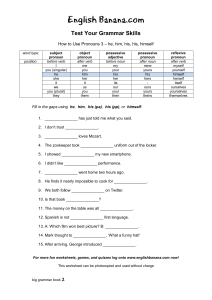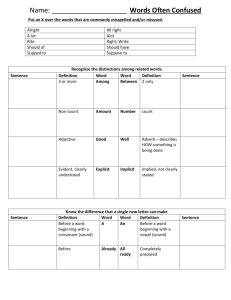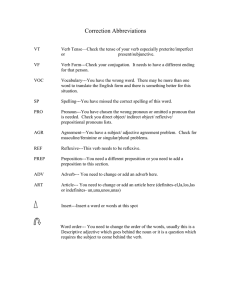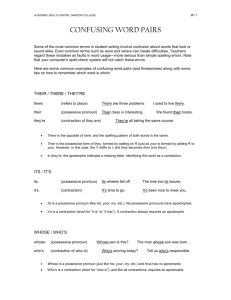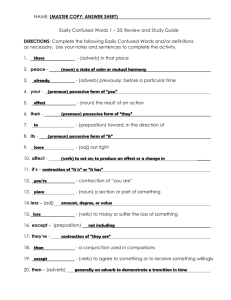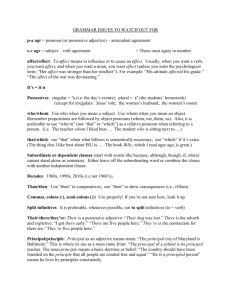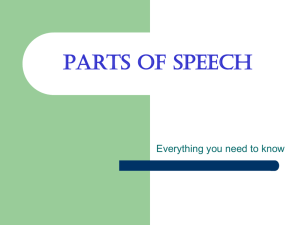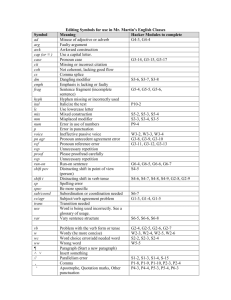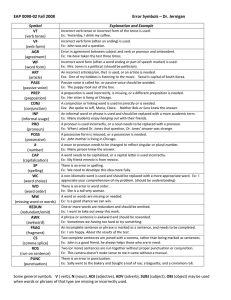Homophones
advertisement
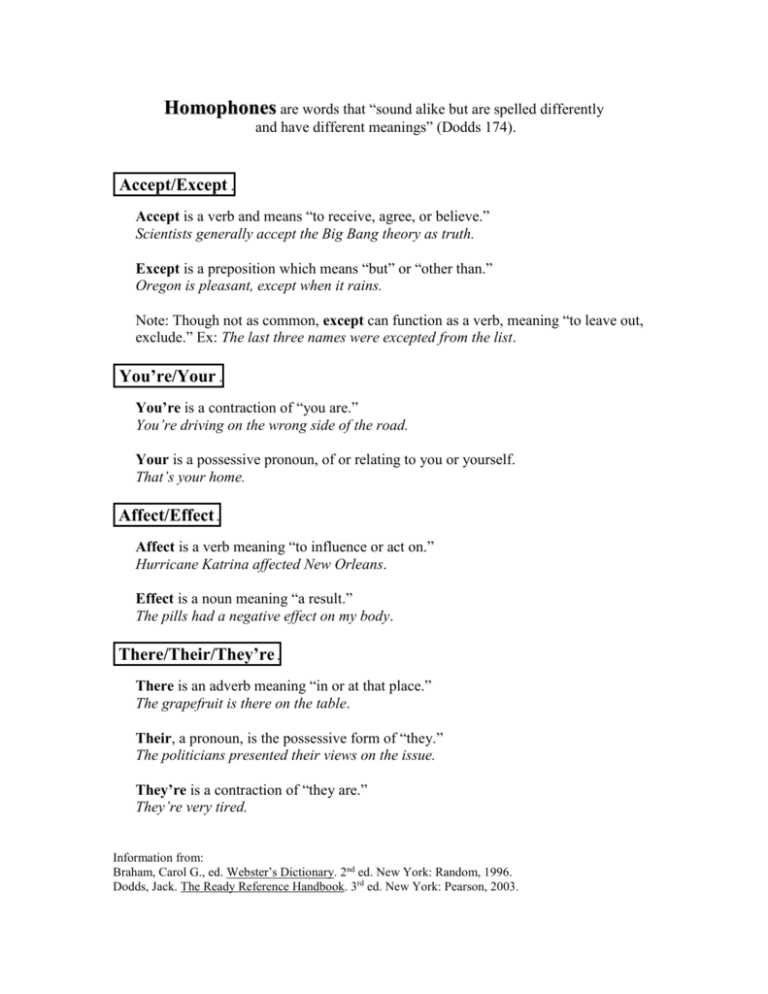
Homophones are words that “sound alike but are spelled differently and have different meanings” (Dodds 174). Accept/Except . Accept is a verb and means “to receive, agree, or believe.” Scientists generally accept the Big Bang theory as truth. Except is a preposition which means “but” or “other than.” Oregon is pleasant, except when it rains. Note: Though not as common, except can function as a verb, meaning “to leave out, exclude.” Ex: The last three names were excepted from the list. You’re/Your . You’re is a contraction of “you are.” You’re driving on the wrong side of the road. Your is a possessive pronoun, of or relating to you or yourself. That’s your home. Affect/Effect . Affect is a verb meaning “to influence or act on.” Hurricane Katrina affected New Orleans. Effect is a noun meaning “a result.” The pills had a negative effect on my body. There/Their/They’re . There is an adverb meaning “in or at that place.” The grapefruit is there on the table. Their, a pronoun, is the possessive form of “they.” The politicians presented their views on the issue. They’re is a contraction of “they are.” They’re very tired. Information from: Braham, Carol G., ed. Webster’s Dictionary. 2nd ed. New York: Random, 1996. Dodds, Jack. The Ready Reference Handbook. 3rd ed. New York: Pearson, 2003.
